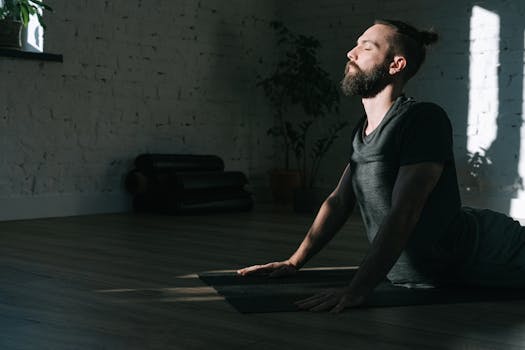Boost Your Mood: The Mental Health Benefits of Regular Physical Activity
Takeaways: Regular physical activity isn’t just about building muscles or losing weight; it’s also a powerful tool for enhancing mental health. Whether you’re battling anxiety, stress, or just feeling a bit low, incorporating exercise into your routine can lead to significant improvements in your overall well-being. So, lace up those sneakers and let’s dive into the mental health benefits of staying active!
Hey there! If you’ve ever felt like the weight of the world is on your shoulders, you’re not alone. Life can be overwhelming sometimes, and it’s easy to feel bogged down by stress and anxiety. But did you know that one of the simplest ways to lighten that load is through regular physical activity? Yep, exercise isn’t just for getting fit; it’s a fantastic way to boost your mental health. Let’s explore how moving your body can transform your mood!
The Science Behind Exercise and Mental Health
Okay, let’s get a little nerdy for a sec. When we exercise, our bodies release endorphins, which are basically nature’s “feel-good” hormones. These little guys help to alleviate pain and trigger a positive feeling in the body, often referred to as a “runner’s high.” But that’s not all! Regular physical activity also increases the production of serotonin, a neurotransmitter that plays a crucial role in mood regulation. More serotonin? Yes, please!
But the benefits don’t stop at just hormonal changes. Exercise can also help reduce levels of the body’s stress hormones, such as adrenaline and cortisol. So, when you sweat it out at the gym or during a brisk walk, you’re actively lowering your stress levels. It’s like hitting the reset button on your mind!
Real-Life Benefits of Staying Active
Now that we know the science behind it, let’s talk about some real-life benefits of regular physical activity. I remember when I first started jogging. Honestly, I was more of a couch potato than a fitness fanatic, but after a few weeks of jogging, I noticed a huge difference. Not only did my mood improve, but I also felt more energized throughout the day. It was like my brain was finally awake!
One of the first things you’ll notice when you start moving more is a reduction in feelings of anxiety and depression. Exercise can be a powerful antidote! It gives you a sense of accomplishment, boosts your self-esteem, and helps you feel more in control of your life. Plus, it’s a great distraction from negative thoughts. Instead of ruminating over that awkward conversation you had, you’ll be focused on your breathing and the rhythm of your feet hitting the pavement.
Another amazing benefit is improved sleep. When you’re more active during the day, your body craves rest at night. Trust me, there’s nothing like a good night’s sleep to help you tackle the next day with a clear mind and a positive outlook. I’ve found that after a solid workout, I sleep like a baby, and I wake up ready to take on the world!
Getting Started with Physical Activity
So, you’re sold on the idea of using physical activity to boost your mental health, but where do you start? Here are a few tips that worked wonders for me:
- Find What You Love: Whether it’s dancing, swimming, hiking, or yoga, find an activity that brings you joy. You’re more likely to stick with it if you enjoy it!
- Set Realistic Goals: Start small and gradually increase your activity level. Even a 10-minute walk can make a difference!
- Make it Social: Grab a friend to join you! Exercising with someone can make it more fun and keep you accountable.
- Listen to Your Body: Remember to rest and recover. It’s okay to take breaks and give yourself time to recharge.
By incorporating these tips into your daily routine, you’ll be well on your way to feeling the mental health benefits of regular physical activity!
FAQs

A: Aim for at least 150 minutes of moderate aerobic exercise each week, which breaks down to about 30 minutes a day, five days a week. But remember, any movement is better than none!
Q: What type of exercise is best for mental health?
A: There’s no one-size-fits-all answer, but activities that get your heart rate up, such as walking, running, cycling, or dancing, are great. The key is to find something you enjoy!
Q: Can I really feel better after just one workout?
A: Absolutely! Many people report feeling a mood boost immediately after exercising. It’s all about those endorphins kicking in.
Q: What if I don’t have time to exercise?
A: Even short bursts of activity count! Try incorporating movement into your daily routine. Take the stairs instead of the elevator, or do a quick workout during your lunch break.
Q: How can I stay motivated to keep exercising?
A: Set personal goals, track your progress, and celebrate your achievements! Finding a workout buddy can also help keep you motivated and accountable.






